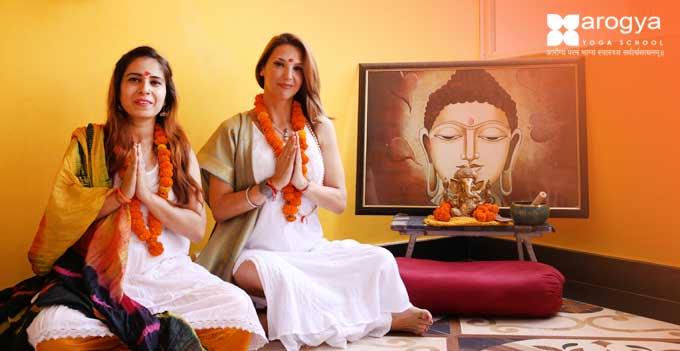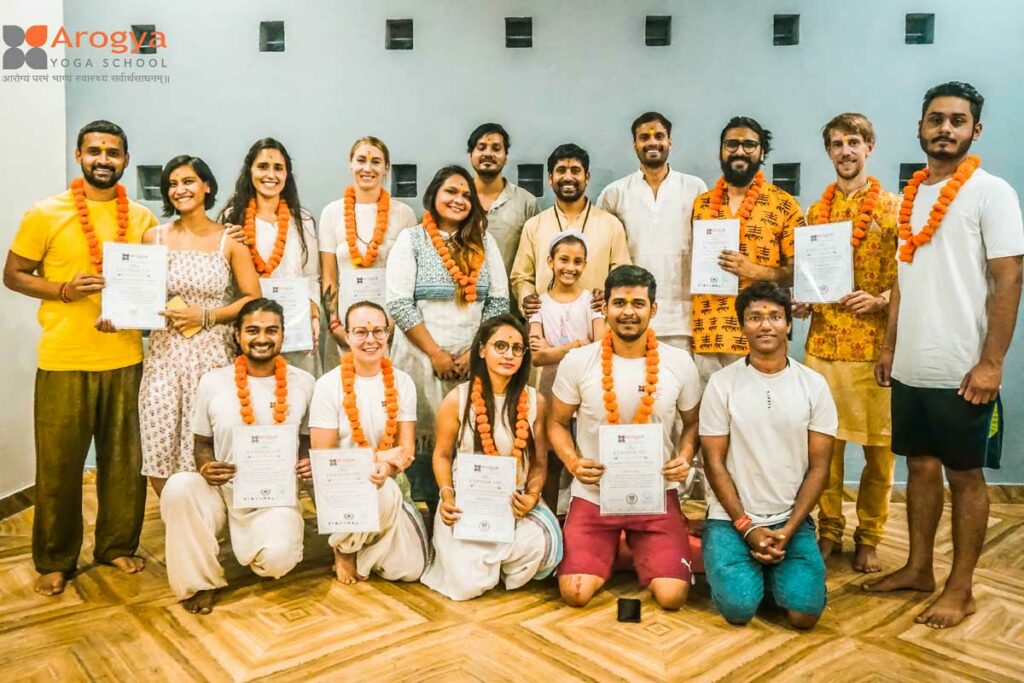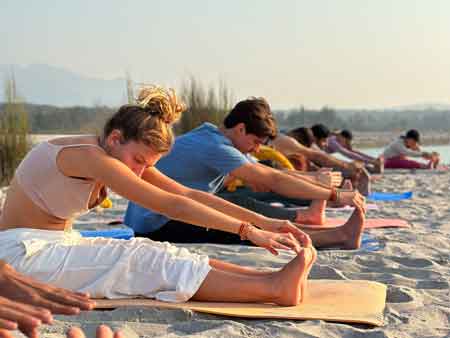Yoga Teacher Training with Arogya Yoga School oldest yoga school in rishikesh
Oldest yoga school India

Reputation and Experience: Consider the school’s reputation and how long they have been offering yoga teacher training programs. Arogya Yoga School may have a good reputation and a track record of providing quality education and training.
- Certification and Accreditation: Ensure that the school is certified by a recognized yoga alliance or governing body. This accreditation ensures that the program meets certain standards and that your certification will be recognized internationally.

- Experienced Faculty: Look for experienced and qualified teachers who have a deep understanding of yoga philosophy, asana practice, and teaching methodology. Experienced instructors can provide valuable insights, guidance, and mentorship throughout your training.
- Comprehensive Curriculum: Evaluate the curriculum and ensure that it covers the essential components of yoga, including asanas, pranayama, meditation, philosophy, anatomy, teaching methodology, and ethics. A well-rounded curriculum will provide you with a solid foundation as a yoga teacher.
- Teaching Methodology: Consider the teaching methods and approach used by the school. Some programs may emphasize practical teaching experience, while others focus more on theoretical knowledge. Choose a program that aligns with your learning style and preferences.
- Class Size and Personal Attention: Find out the maximum number of students allowed in each training program. Smaller class sizes often provide more.

What will you learn from 200-hour yoga teacher training in Rishikesh?
200-hour yoga teacher training in Rishikesh, or any reputable yoga teacher training program, typically covers a comprehensive curriculum to provide a strong foundation in yoga philosophy, asanas (yoga postures), pranayama (breathing exercises), meditation, anatomy, teaching methodology, and ethics for yoga instructors. Here are some key areas you can expect to learn during a 200-hour yoga teacher training:
- Yoga Philosophy: You will delve into the study of classical yoga texts such as the Yoga Sutras of Patanjali and the Bhagavad Gita, gaining an understanding of yogic principles, the eight limbs of yoga, and the yogic lifestyle.
- Asanas (Yoga Postures): You will learn a wide range of yoga postures, their proper alignment, and sequencing. This includes standing, seated, twisting, balancing, backbends, inversions, and relaxation poses. Additionally, you will explore modifications and adjustments to accommodate different body types and abilities.
- Pranayama (Breathing Exercises): You will be introduced to various breathing techniques, such as ujjayi breath, kapalabhati, anulom vilom, and more. These practices help cultivate awareness, control of breath, and pranic energy.
- Meditation and Mindfulness: You will be guided in different meditation techniques to develop focus, concentration, and mindfulness. This may include practices like breath awareness, mantra meditation, and guided visualization.
- Anatomy and Physiology: You will learn about the human body’s anatomical structure, including muscles, bones, joints, and major organ systems. Understanding how the body works will help you teach yoga with awareness of potential limitations, precautions, and modifications for students.
- Teaching Methodology: You will gain skills in designing and structuring yoga classes, sequencing postures, effective demonstration, verbal cues, and providing hands-on adjustments. You will also explore different teaching styles and learn how to create a safe and inclusive environment for students.
- Ethics and Professionalism: You will learn about the ethical principles and professional standards for yoga teachers, including creating boundaries, respecting students’ privacy, maintaining professionalism, and embodying the yogic values both on and off the mat.
- Practicum and Teaching Practice: You will have opportunities to practice teaching yoga under the guidance of experienced instructors. This includes receiving feedback and refining your teaching skills.
Overall, a 200-hour yoga teacher training in Rishikesh or any reputable program aims to provide you with a comprehensive understanding of yoga as a holistic practice, equipping you with the knowledge and skills to confidently lead yoga classes and share the benefits of yoga with others.




